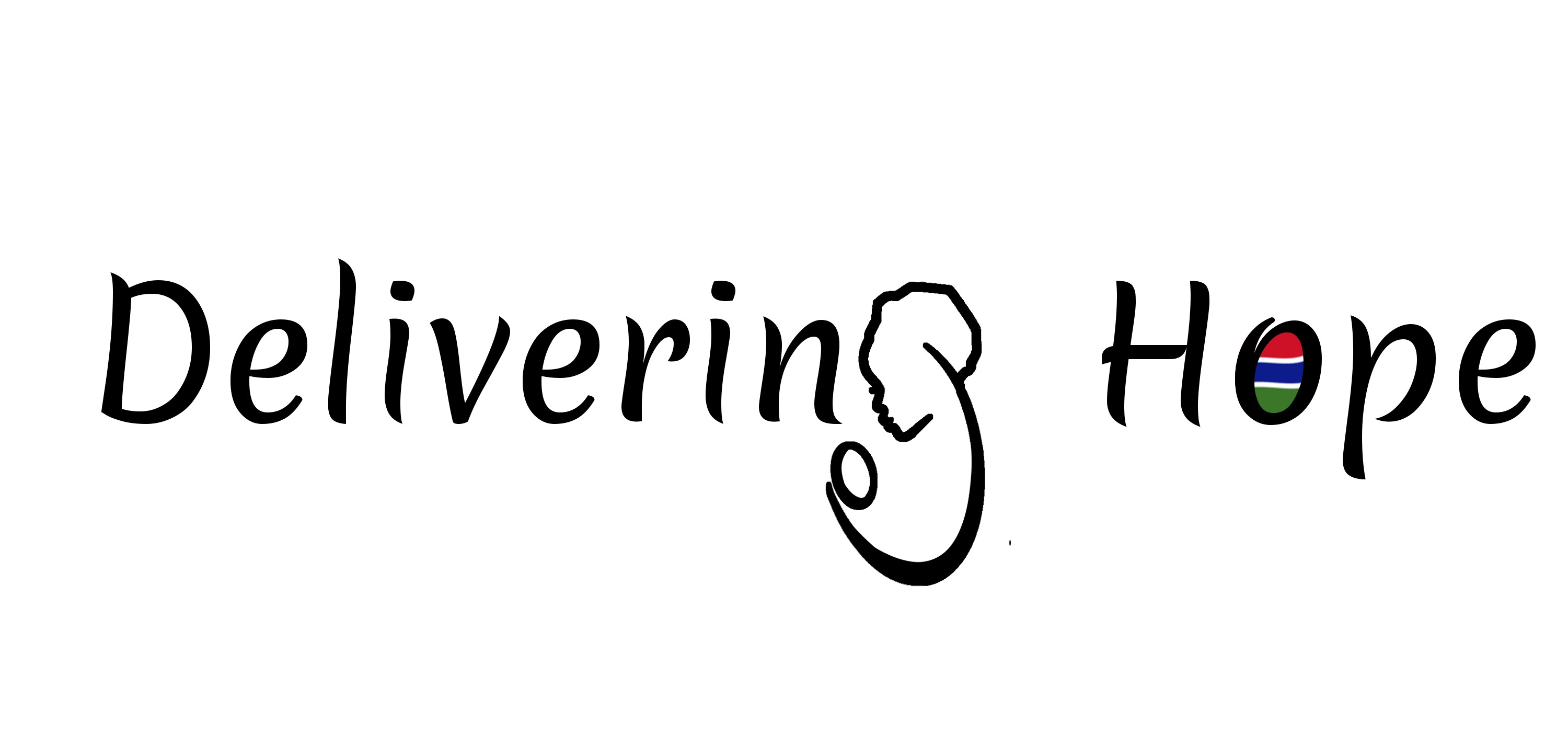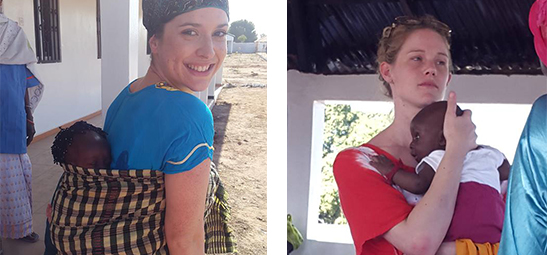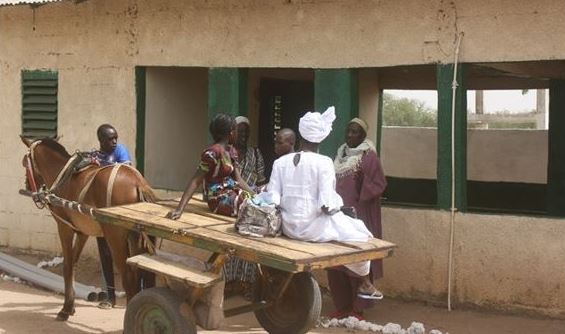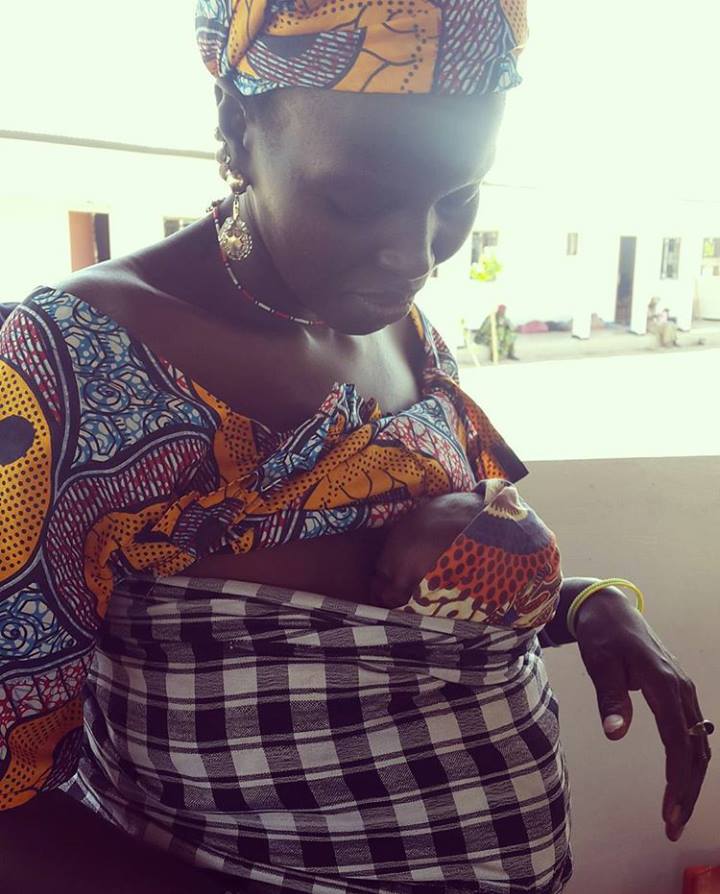Maternity Care – T he ‘Delivering Hope’ Project
he ‘Delivering Hope’ Project
The Morgan Clark Foundation is proud to introduce Jaye and Charlie, who are NHS midwives striving to improve maternity care for families in and around Jarjari Village.
Jaye and Charlie’s story…

“In May 2015, we travelled to Jarjari to assess what was needed to support existing maternity and new-born care. As this is a community where The Morgan Clark Foundation has already made a significant impact with education, we felt a sense of kinsmanship and responsibility to help the families there in any way we could. We feel strongly that in the current era of convenience and availability it is unacceptable that women are unable to access basic maternity care for themselves and their vulnerable babies.
What we found
Care during labour appeared to be quite sporadic. Jarjari and the surrounding areas are served by health clinics where many women attend for labour and birth and are cared for by trained Doctors and Nurses. However the facilities in the existing clinics are poor. The rooms are cramped and dirty, allowing no dignity for the women.


The drug cupboard consisted of a couple of bottles of paracetamol and iron tablets. Antibiotics are an unaffordable commodity. On our visit there was no way of adequately sterilising the one set of delivery instruments. The water supply was and still is massively insufficient for the facility and families often have to walk to the local pump to collect the water needed for their family members care.
Traditional Birth Attendants (TBAs)
Many women labour and deliver at home, either through choice or necessity due to lack of transport. These ladies are cared for by the traditional birth attendants, (TBAs). The TBAs are generally women over 60, some considerably older, with very little or more frequently, no experience. The majority had absolutely no equipment. No gloves, no towels, nothing clean to cut the cord with and no knowledge to draw on in the event of an emergency. They often have to walk miles to attend to women.
Through talking to the TBAs, Doctors and Nurses at the clinics, it became apparent that one of the key barriers in providing basic, adequate maternity care is transport. The ambulance service is minimal. Most women in labour or families with sick babies will travel by donkey and cart, or if this is unaffordable they will walk, often for hours, to the local clinic. This uncomfortable and lengthy process is delaying lifesaving treatment. In the wet season many rural areas are inaccessible by donkey and the very sick have no other option than to manage as best they can at home.
To find out more about the TBA’s and how you can support them, please click here.
Below are some recent statistics for rural Gambia:
- 1 in 13 babies will not live to see their 1st birthday
- 1 in 200 women die as a result of pregnancy or childbirth
- A woman in sub-saharan Africa is 75 times more likely to die as a result of complications of pregnancy or labour than those in Europe
- Only 50 % of deliveries are attended by a skilled attendant
- Mortality rates in Gambia are ranked among the highest in Africa, especially in rural areas
- 75% of maternal and neonatal deaths are as a direct result of pregnancy, and almost all of these deaths are preventable.
The main contributing factors in these deaths are lack of training and delay in treatment. These are the 2 factors we are targeting through The Delivering Hope Project.


/>
What we have done
We believe that with appropriate tr aining for the midwives at the cl
aining for the midwives at the cl inics and the TBAs in the community we can increase the recognition of life threatening situations for mothers and babies and they can be referred to a more appropriate healthcare environment. For this to occur, suitable and timely transport is of paramount importance.
inics and the TBAs in the community we can increase the recognition of life threatening situations for mothers and babies and they can be referred to a more appropriate healthcare environment. For this to occur, suitable and timely transport is of paramount importance.
In March 2016, we returned to Jarjari armed with teaching materials, props, videos, prompts and a wide repertoire of various delivery positions to demonstrate! We were honoured to be joined by 17 TBAs from surrounding areas, several nurses and doctors and around 50 new and expectant mums. To say we were blown away is an understatement. Everyone was eager to learn, very few had any prior training or classroom experience. By the end of the week all attendees were able to identify life threatening conditions for mother and baby. And most importantly, they understood that women and babies who show any of these signs require treatment somewhere other than at home.
With support from our friends at First Aid For Gambia, we were also able to teach basic life support and first aid skills.
Since our last visit in March 2016
 Through fundraising and generous donations we have been able to supply an emergency transport vehicle. This will have a massive impact on the local community, allowing TBAs to travel with their women to the clinic when necessary. High risk cases and sick babies will now be able to be transferred to the main hospital in Farafeni quickly and safely, improving health and mortality for mothers and babies. Women in labour, newborn babies or indeed any patient requiring treatment will no longer have to walk or wait for a donkey and cart which has, in the past, delayed crucial treatment.
Through fundraising and generous donations we have been able to supply an emergency transport vehicle. This will have a massive impact on the local community, allowing TBAs to travel with their women to the clinic when necessary. High risk cases and sick babies will now be able to be transferred to the main hospital in Farafeni quickly and safely, improving health and mortality for mothers and babies. Women in labour, newborn babies or indeed any patient requiring treatment will no longer have to walk or wait for a donkey and cart which has, in the past, delayed crucial treatment.
Our Aim
We will continue to support the TBAs of Northern Gambia with our sponsorship programme and regular visits or correspondence. It is important to maintain the training and educational facet of the organisation, and long term would like to explore the option of expanding the team of midwives involved.
The addition of emergency transport is invaluable and must be maintained. On-going fundraising will facilitate this.
As the new emergency transport is likely to result in more patients being bought to the clinics, we will need to continue supporting local clinics to ensure they have everything they need to care for patients appropriately. Through donations and corporate sponsorship, we would like to be able to provide the clinics with a regular water supply and suitable equipment for sterilising instruments.
If you’d like to see how your donations are spent and set up a monthly donation or a one-off donation, click here.
